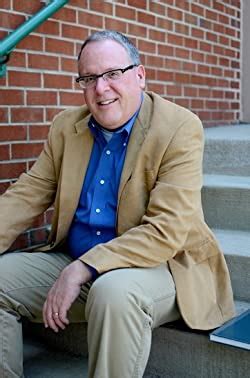A Quote by Andrew Sullivan
True belief is not about blind submission. It is about open-eyed acceptance, and acceptance requires persistent distance from the truth, and that distance is doubt. Doubt, in other words, can feed faith, rather than destroy it. And it forces us, even while believing, to recognize our fundamental duty with respect to God's truth: humility. We do not know. Which is why we believe.
Related Quotes
Doubt is most often the source of our powerlessness. To doubt is to be faithless, to be without hope or belief. When we doubt, our self-talk sounds like this: 'I don't think I can. I don't think I will.'... To doubt is to have faith in the worst possible outcome. It is to believe in the perverseness of the universe, that even if I do well, something I don't know about will get in the way, sabotage me, or get me in the end.
Do you call it doubting to write down on a piece of paper that you doubt? If so, doubt has nothing to do with any serious business. But do not make believe; if pedantry has not eaten all the reality out of you, recognize, as you must, that there is much that you do not doubt, in the least. Now that which you do not at all doubt, you must and do regard as infallible, absolute truth.
For every gain in deep certitude there is a corresponding growth of superficial "doubt." This doubt is by no means opposed to genuine faith, but it mercilessly examines and questions the spurious "faith" of everyday life, the human faith which is nothing but the passive acceptance of conventional opinion.
Truth is never our enemy, ever. So we should never freak out about people who claim to have discovered truth. If it's true truth, God owns it and has already accounted for it, and while nothing that is true ever contradicts God's revealed word in the Bible, discovered truth sometimes contradicts the words of Christians. We shouldn't be afraid of this, because God knew it before anybody else and its discovery is dependent on his sovereignty anyway. The truth is that the truth is ours - all truth is our truth because we are of Christ and Christ is of the sovereign God.
Everyone who observes himself doubting observes a truth, and about that which he observes he is certain; therefore he is certain about a truth. Everyone therefore who doubts whether truth exists has in himself a truth on which not to doubt.... Hence one who can doubt at all ought not to doubt the existence of truth.
The blessed Paul argues that we are saved by faith, which he declares to be not from us but a gift from God. Thus there cannot possibly be true salvation where there is no true faith, and, since this faith is divinely enabled, it is without doubt bestowed by his free generosity. Where there is true belief through true faith, true salvation certainly accompanies it. Anyone who departs from true faith will not possess the grace of true salvation.
And the reason is found in the first lie - the lie which you hold as the truth about God - that God cannot be trusted; that God's love cannot be depended upon; that God's acceptance of you is conditional; that the ultimate outcome is thus in doubt. For if you cannot depend on God's love to always be there, on whose love can you depend? If God retreats and withdraws when you do not perform properly, will not mere mortals also?
What was once a tiny seed of belief for me has grown into the tree of life, so if your faith is a little tested in this or any season, I invite you to lean on mine. I know this work is God’s very truth, and I know that only at our peril would we allow doubt or devils to sway us from its path. Hope on. Journey on. Honestly acknowledge your questions and your concerns, but first and forever fan the flame of your faith, because all things are possible to them that believe.
The stigmatized individual is asked to act so as to imply neither that his burden is heavy nor that bearing it has made him different from us; at the same time he must keep himself at that remove from us which assures our painlessly being able to confirm this belief about him. Put differently, he is advised to reciprocate naturally with an acceptance of himself and us, an acceptance of him that we have not quite extended to him in the first place. A PHANTOM ACCEPTANCE is thus allowed to provide the base for a PHANTOM NORMALCY.

































